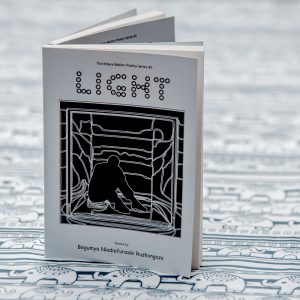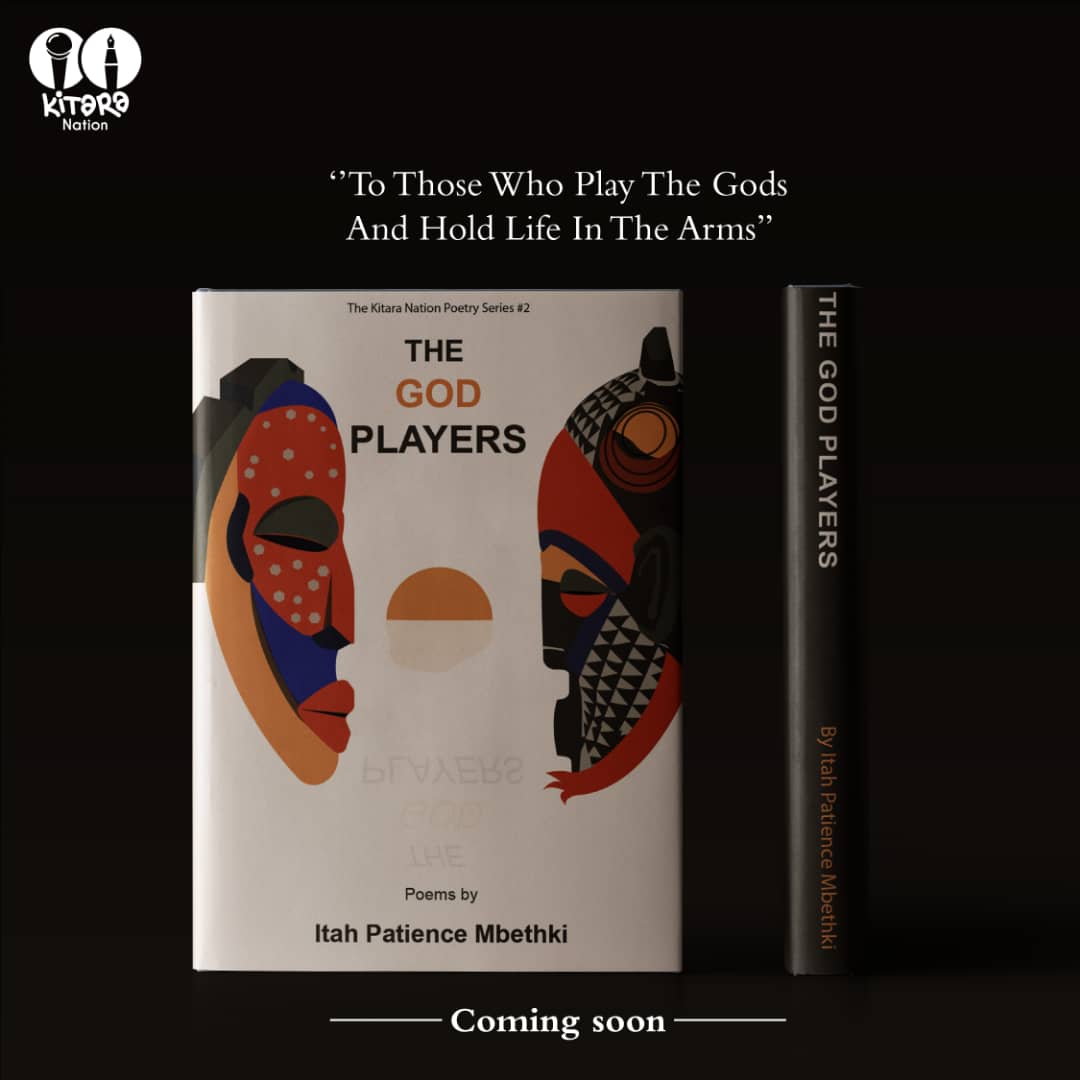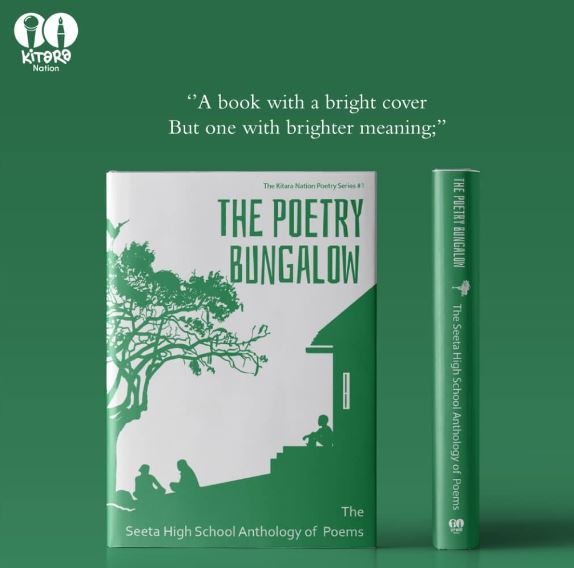Shop

DON’T LOVE ME IN ENGLISH by Bridget Ankunda
January 6, 2021
RHYMES, METAPHORS, AND I by Verse In Vac
January 6, 2021NO SPEAKING VERNACULAR by Kagayi Ngobi
UGX20,000
“No speaking Vernacular was beautifully performed; humourous, witty, revealing. I thought the play clearly brought out the shortcomings of an education system that wholly demonizes the use of native languages in schools. No Speaking Vernacular pits Mr. Full stop, the John Speke High School Headteacher against Dambya, (Nsubuga Muhammad) a renegade vernacular speaker. Dambya’s sin is using the Luganda word ‘gwe’ which Mr Full stop considers an unforgivable breach of Article 23 of the school Regulations.
In punishment, Dambya suffers the minimum punishment prescribed by the regulations. He is caned. He is forced to wear old sisal sackcloth, a bone around his neck, and a placard bearing the words: “I am stupid. I speak Vernacular.”
– Herbert Okello Andrew, Lawyer, teacher.
Excerpt
Aha! It’s you Dambya
Today I have caught you!
Today you are not escaping me!
Dambya, I have heard you
Today I have heard you
With my own ears
You have said GWE
Get out, get out,
Get out of dorm!
Come outside here
You let him pass;
Come, come; come!
Every day, every single day,
They report to me
That you use vernacular
And every time I ask you
You deny, you say they lie,
And you can deny, Dambya-
You are so good at denying
But today I have caught you
With my own ears
Full Stop! Full?
I have heard you
Speaking vernacular.
Today, no denying!
Today no?
Author Bio
Kagayi Ngobi is a Ugandan performance poet and a Team Leader at Kitara Nation, a poetry company. He is also the author of THE (NEW) HEADLINE THAT MORNING, PUPU POEMS (2018, Kitara Nation) and FOR MY NEGATIVITY (2019, Kitara Nation). His works have featured in a number of theatre productions and have also appeared in a number of poetry anthologies. Kagayi enjoys performing poetry and plays and he lives in Kampala.
Publishing Particulars of the Book
ISBN: 9-798654-861160
Format: Paperback & Kindle
Language: English
Number Of Pages: 44
Published: 2020
Publisher: Kitara Nation
Only logged in customers who have purchased this product may leave a review.
Related products
-
Add to cart
LIGHT by Begumya Nkabafunzaki Rushongoza
UGX30,000“I think of Rusho’s LIGHT as an act of taking the veil off the world; of the man he is, and that of the people around him. I am deliberate about calling it an act because it’s memory in motion. Each poem dances below a bulb at its own tempo and intent. Some of them seek it, the spot, while others avoid it so that the pains and injustices in their bodies aren’t seen. But a lot is on display still, even during moments of darkness. Questions about gender and the human body, loss, relationships, the country, self, and so on. I admire the bravery by which he writes about himself. What drives a man to speak about himself with such honesty? The only way to find out is by diving into the poems he presents as a mirror.
-Lule ssebo Lule, author of OGENDA WA?
-
Add to cart
THE GOD PLAYERS by Itah Patience Mbethki
UGX20,000“On the whole, this book is a triumph for the author and The Poetry Series by KITARA NATION. The lexical arrangements uplift its rhythm with a triumph of apostrophic repetition that is typical of Kitara’s style (For the mood has changed/And the boys have changed/ And the girls have changed/ And the boss has changed). Each part of the book (which is accompanied by illustrations) is heightened to the echo chamber of history. Oh yes, these words will ring through time.”
– Phillip Matogo, poet, author, critic.
-
Add to cart
THE POETRY BUNGALOW by Seeta High School Writers Club
UGX20,000“The young writers have vehemently demonstrated their frustrations, puzzles and hopes in a society with adults swallowed in know-it-all snobbery. The poetic arrows in this poetry collection declare war on societal silence on things that matter most and draw lines to proper order of the ideal society, a society in which they would love to dwell now as children and tomorrow as adults. It is a reflective collection of thoughts with thousands of options of solutions to our fears. It is work you wouldn’t abandon to dust.”
-Kened. B. Ngiise iii, teacher, poet/writer.










Reviews
There are no reviews yet.